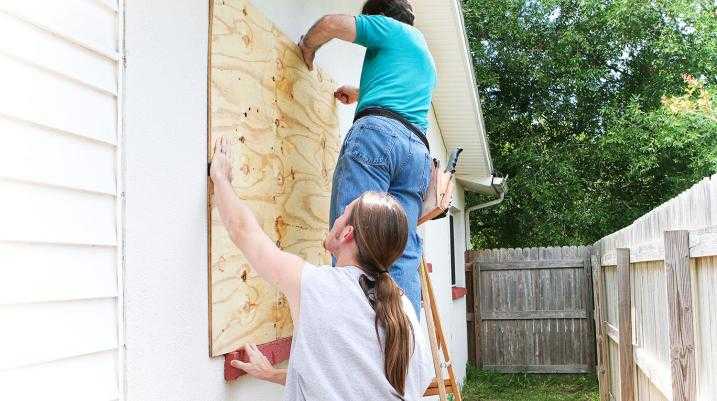Hurricane Isaias: A Reminder That Hurricane Preparation Is Essential Everywhere

Hurricane damage is not limited to Florida, the Gulf Coast, or the Coastal Carolinas, nor is the havoc these storms wreak limited to flooding. The path Tropical Storm Isaias recently took across the East Coast, and the damage it left behind, is a stark reminder that hurricane and storm preparedness is essential everywhere.
Isaias, which started as a category 1 hurricane before weakening to a tropical storm, left a path of destruction as it raced up the East Coast after making landfall in Ocean Isle Beach, North Carolina. In its wake, the storm left power outages, flooding, tornadoes, and fierce winds across multiple states: Connecticut, Delaware, Maryland, New Jersey, New York, North Carolina, Pennsylvania, South Carolina, and Virginia.
According to news reports, tornadoes were confirmed in Virginia, Maryland, Delaware, and New Jersey. Dangerous and deadly tree falls were reported in Connecticut, Delaware, Maryland, New York, and New Hampshire.
According to the New York Times, utility workers were struggling to restore power to more than two million people from southern New Jersey to northern Connecticut. Power outages were also reported in Pennsylvania and Washington, D.C.
Across the East Coast, it’s estimated that at least nine people were killed due to the storm’s destruction.
Here are some tips on how to prepare for a storm, no matter where you are.
How to Prepare for a Power Outage
Extended power outages can impact whole communities. Communications, water, and transportation may be disrupted; grocery stores, gas stations, ATMs, banks, and other services could be closed; and some medical devices might not be able to be used.
There are several steps you can take to make sure you’re prepared for a potential power outage:
- Take an inventory of items you need that rely on electricity.
- Talk to your medical provider about a power outage plan for refrigerated medicines and medical devices that are powered by electricity.
- Have supplies ready, like flashlights with extra batteries for every household member and enough nonperishable food and water.
- Install carbon monoxide detectors with battery backup in central locations on every level of your home.
- Use a thermometer in the refrigerator and freezer so that you can know the temperature when the power is restored. Throw out food if the temperature is 40 degrees or higher.
- Keep mobile phones and other electric equipment charged and gas tanks full.
- Turn off or disconnect appliances, equipment, or electronics during an outage.
- Go to a community location with power in extreme heat or cold.
How to Prepare for a Tornado
FEMA has guidelines you can follow to prepare for a tornado. It’s important to first recognize the signs of a tornado: a funnel-shaped cloud, an approaching cloud of debris, or a loud roar. Here are some more steps you can take to keep yourself safe in the case of a tornado:
- Sign up for your community’s warning system, and pay attention to weather reports.
- Identify and practice going to a safe shelter for high winds - either a safe room built using FEMA criteria, a storm shelter built to ICC 500 standards, or a small, interior, windowless room in a sturdy building on the lowest level. Immediately go to this place during a tornado.
- Do not try to outrun a tornado in a vehicle. If you are in a car or outdoors and cannot get to a building, cover your head and neck with your arms and cover your body with a coat or blanket, if possible.
- Listen to EAS, NOAA Weather Radio, and local authorities for updated information and instructions
- Stay clear of fallen power lines or broken utility lines.
- Do not enter damaged buildings until you are told that it is safe to do so.
- Save your phone calls for emergencies. Phone systems are often down or busy after a disaster. Use text messaging or social media to communicate with family and friends.
- Be careful during clean-up. Wear thick-soled shoes, long pants, and work gloves.
We’re Here For You
As Isaias demonstrated, hurricanes and storms can cause damage all along the East Coast. If your home or business has been damaged, our attorneys are here to help.
If your insurance company is denying, delaying, or lowballing your claim, it’s our job to hold them accountable so you can recover full and fair compensation for your losses. If you’ve been affected by Isaias or another storm and are having trouble getting your claim paid, contact Morgan & Morgan. Schedule a free, no-risk case evaluation to learn more.
Injured? Getting the compensation you deserve starts here.

Injured?
Not sure what to do next?
We'll guide you through everything you need to know.